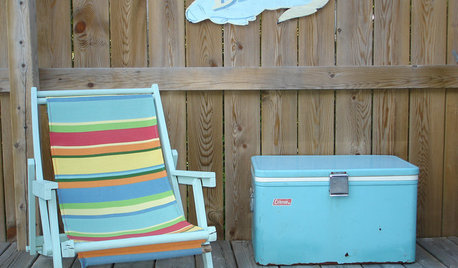Being Broke isn't just about cash flow
chelone
17 years ago
Related Stories

DINING ROOMSNew This Week: Proof the Formal Dining Room Isn’t Dead
Could graphic wallpaper, herringbone-patterned floors, wine cellars and fire features save formal dining rooms from extinction?
Full Story
FUN HOUZZDon’t Be a Stickybeak — and Other Home-Related Lingo From Abroad
Need to hire a contractor or buy a certain piece of furniture in the U.K. or Australia? Keep this guide at hand
Full Story
REMODELING GUIDES8 Natural Home Materials That Can't Be Beat
See how designing with natural stone, clay, wood and more can give a house luminosity, depth of color and lasting appeal
Full Story
LIGHTINGWhat to Know About Switching to LED Lightbulbs
If you’ve been thinking about changing over to LEDs but aren't sure how to do it and which to buy, this story is for you
Full Story
FUN HOUZZGuessing Game: What Might Our Living Rooms Say About Us?
Take a shot on your own or go straight to just-for-fun speculations about whose homes these could be
Full Story
MOVING9 Things New Homeowners Know to Be True
Just moved into a new home? Congratulations! The fun is about to begin
Full Story
KITCHEN SINKSEverything You Need to Know About Farmhouse Sinks
They’re charming, homey, durable, elegant, functional and nostalgic. Those are just a few of the reasons they’re so popular
Full Story
ARCHITECTURE4 Things a Hurricane Teaches You About Good Design
When the power goes out, a home's design can be as important as packaged food and a hand-crank radio. See how from a firsthand account
Full Story
PETSWhat Chihuahuas Can Teach Us About Interior Design
Who knew these tiny dogs could be such a huge fount of design tips? Houzzers did
Full Story
REMODELING GUIDESWhat to Know About Budgeting for Your Home Remodel
Plan early and be realistic to pull off a home construction project smoothly
Full StorySponsored
More Discussions



joyfulguy
3katz4me
Related Discussions
More Problems - Say It Isn't So!!!
Q
High efficiency isn't necessarily better for everyone????
Q
I am just heart broke...
Q
It just broke our hearts to lose him...
Q
Chemocurl zn5b/6a Indiana
cheloneOriginal Author
costumecarol
celticmoon
steve_o
cheloneOriginal Author
harriethomeowner
cheloneOriginal Author
joyfulguy
steve_o
cheloneOriginal Author
steve_o
cheloneOriginal Author
valtog
3katz4me
stb501
quiltglo
steve_o
Chemocurl zn5b/6a Indiana
mfbenson
sharon_sd
steve_o
okieladybug
steve_o
valtog
joyfulguy
okieladybug
cheloneOriginal Author
joyfulguy
cheloneOriginal Author
steve_o
valtog
cheloneOriginal Author
Nancy in Mich
joyfulguy
steve_o
cheloneOriginal Author
okieladybug
Bumblebeez SC Zone 7
steve_o
cheloneOriginal Author
Miss EFF
cheloneOriginal Author
Miss EFF
cheloneOriginal Author
just_sarah_jane
valtog
cheloneOriginal Author